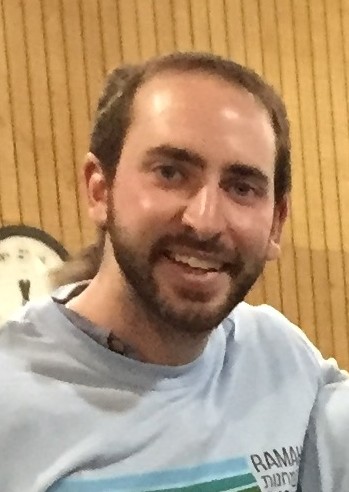Please enjoy a D’var Torah this week from Josh Warshawsky, 2016 Rosh Shira/Tefillah and Artist in Residence. We are thrilled that Josh will be returning to camp this summer as Rosh Omaniyot Habamah (or Rosh Performing Arts). Josh is currently in the Ziegler Rabbinical School in Los Angeles, studying in Israel this year. His second CD, “Mah Rabu,” features many of our favorite camp songs such as “Kol B’Ramah,” “Mah Rabu” and “V’ahavta.” You can check it out on iTunes or at www.joshwarshawsky.com. Reflections on Parashat Mishpatim by Josh Warshawsky
In the 70th year of Camp Ramah in Wisconsin, we’ve spent a lot of time reflecting on our last 70 seasons; the ways in which we’ve grown, the traditions we’ve created, and the ways in which we have failed and succeeded. Reflection is always bittersweet; it enables us to remember our favorite memories from the past, but at the same time we sometimes yearn for past experiences rather than looking ahead towards the future. In any event, milestones remind us that while the past has come and gone, the future is still unwritten.
Our great commentator, Rashi, emphasizes this point in this week’s parashah, Mishpatim. In Mishpatim we read a continuation of the laws God began to deliver last week with the Ten Commandments. The parashah begins: וְאֵלֶּה, הַמִּשְׁפָּטִים, אֲשֶׁר תָּשִׂים, לִפְנֵיהֶם / v’eileh, hamishpatim, asher tasim lifneihem / “These are the laws that you shall set before them” (Exodus 21:1). How do we know that these laws are a continuation and not something entirely new? Instead of reading ְאֵלֶּה, הַמִּשְׁפָּטִים / eileh hamishpatim / “These are the laws,” The first words of the parashah read, וְאֵלֶּה, הַמִּשְׁפָּטִים / v’eileh hamishpatim / “and these are the laws.” Rashi explains:
Wherever אֵלֶּה / eileh / “These are,” is used it cuts off the preceding section from that which it introduces; where, however, וְאֵלֶּה / v’eileh / “and these,” is used it adds something to the former subject [i.e. forms a continuation of it]. So also here: “And these are the laws [i.e. these, also].” What is the case with the former commandments (The Ten Commandments)? They were given at Sinai! So these, too, were given at Sinai!
Further on in the parashah, we are told that, וַיִּכְתֹּב מֹשֶׁה, אֵת כָּל-דִּבְרֵי יְהוָה / vayichtov moshe, eit kol-divrei Adonai / “Moses then wrote down all of the commands of the Lord” (24:4). Rashi explains that this verse means that Moses wrote down all of the laws that God had given to the people from the beginning of the Torah up to, but not including, the account of the giving of the Torah at Mount Sinai.
Why is this important? Because Rashi admits here that even Moses, our greatest teacher, cannot predict the future. Moses cannot write down events that haven’t happened yet, but can only record the story up to that point.
When Moses reads to the people of Israel all that he has written down, they respond with the famous line: כֹּל אֲשֶׁר-דִּבֶּר יְהוָה נַעֲשֶׂה וְנִשְׁמָע / kol asher-diber Adonai na’aseh v’nishma / “all that the Lord has said we will do and we will hear!” (24:7). What does it mean to do and to hear, and why is it written in that order? A second great medieval commentator, known as Rashbam, explains it thusly: “we will carry out what God has already said, and we are prepared to listen [obey] to what God will command from here on out.” I’d suggest a different interpretation of this verse. These verbs are said together, and so should be acted out simultaneously. “We will do” means that we will write the future, living our lives and carrying on the legacy, while “we will listen” adds that we will do this as a continuation of the past and a manifestation of our present. We will remember our past experience. We will remember the rules. We will remember the stories. We will remember the songs. As we mark our 70th anniversary, I am hopeful for the future that we and our campers will write, making sure that we carry the legacy and values of our tradition with us as we build a better tomorrow.
Shabbat Shalom.






